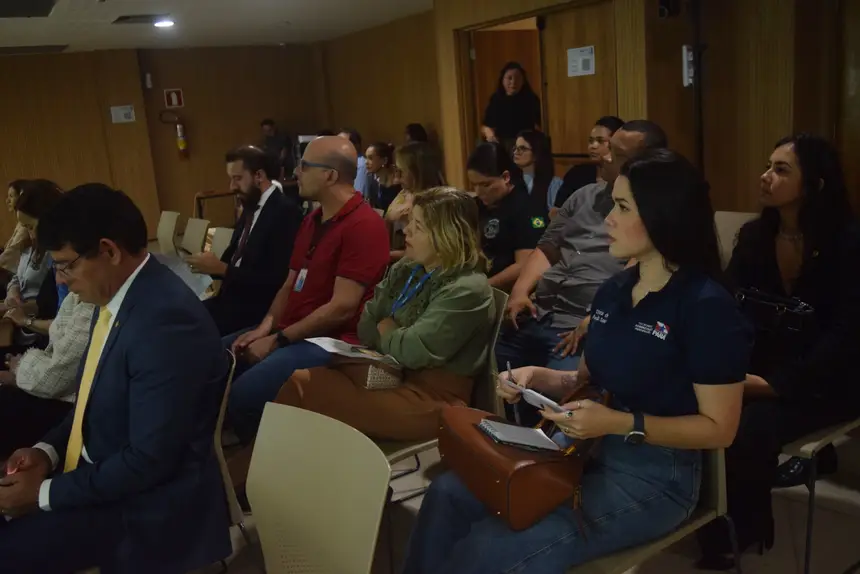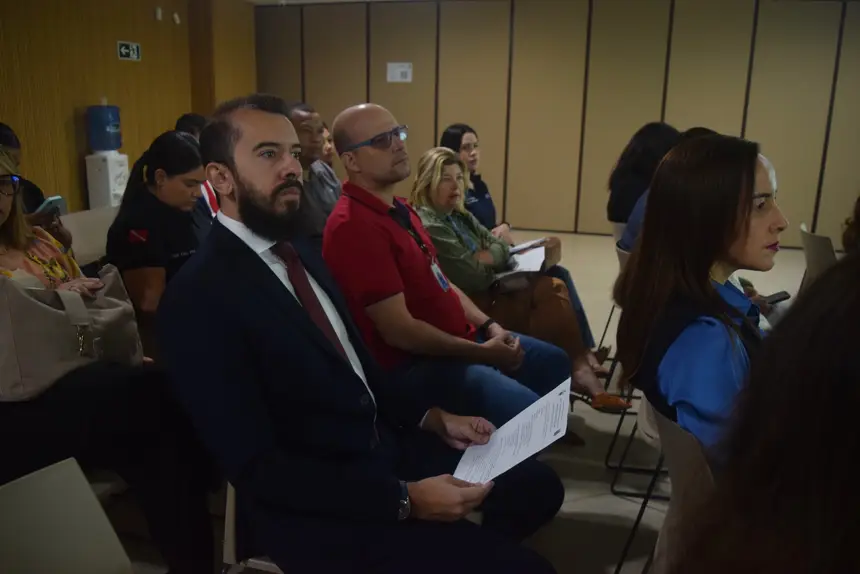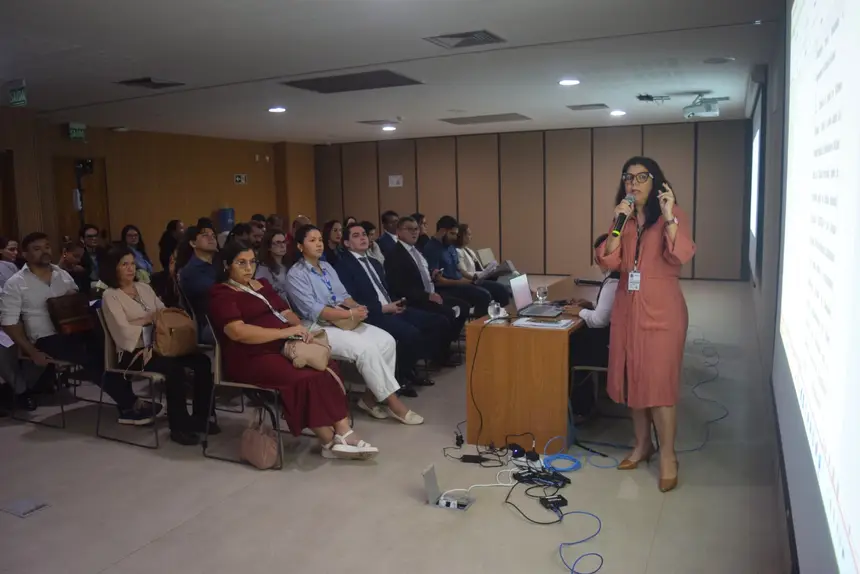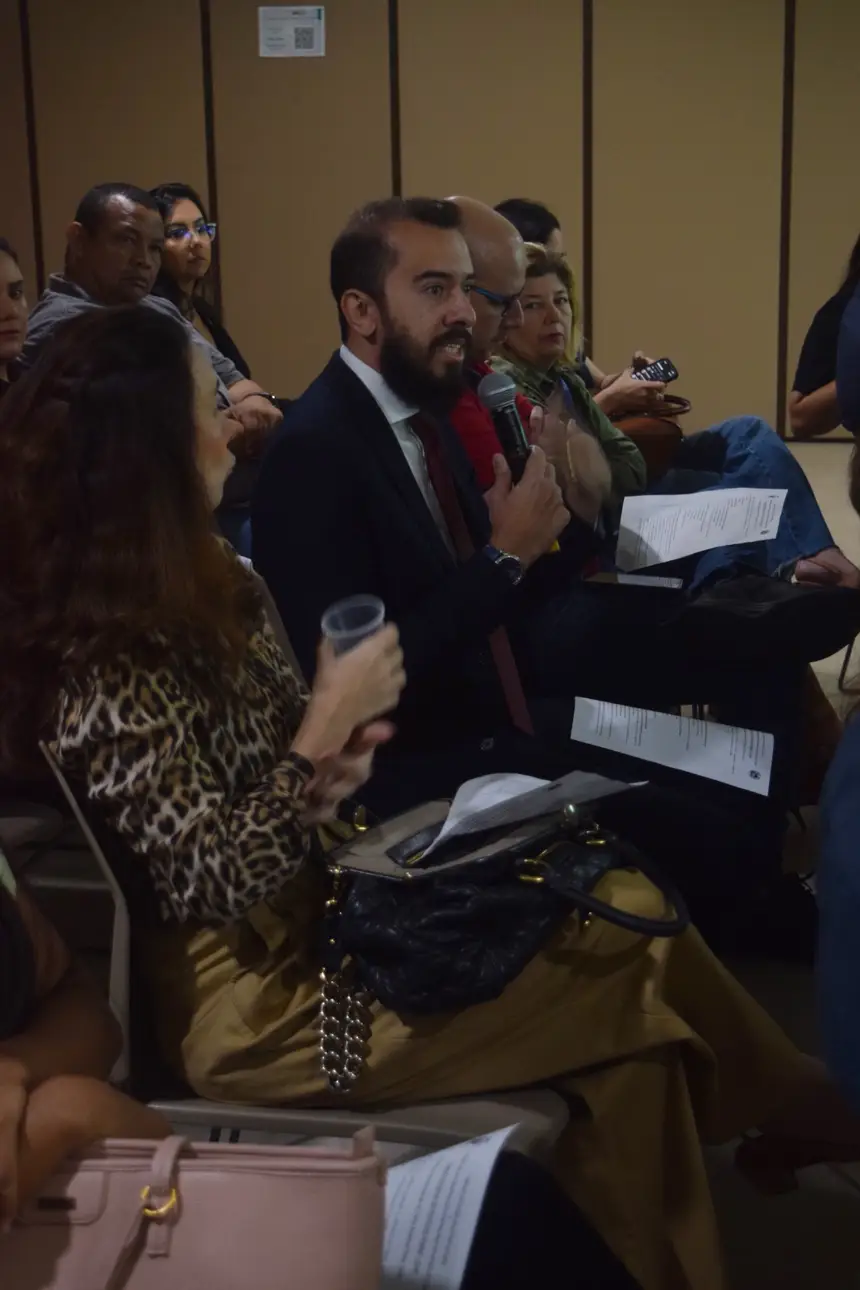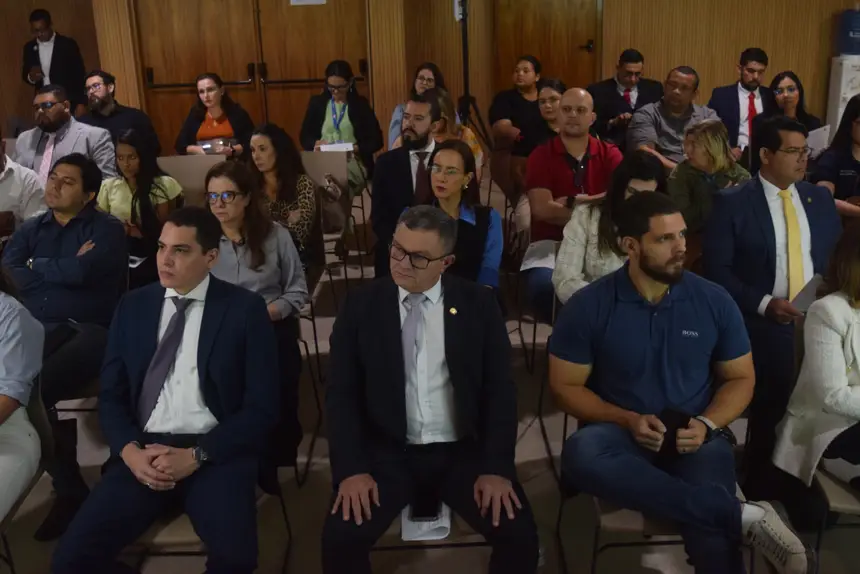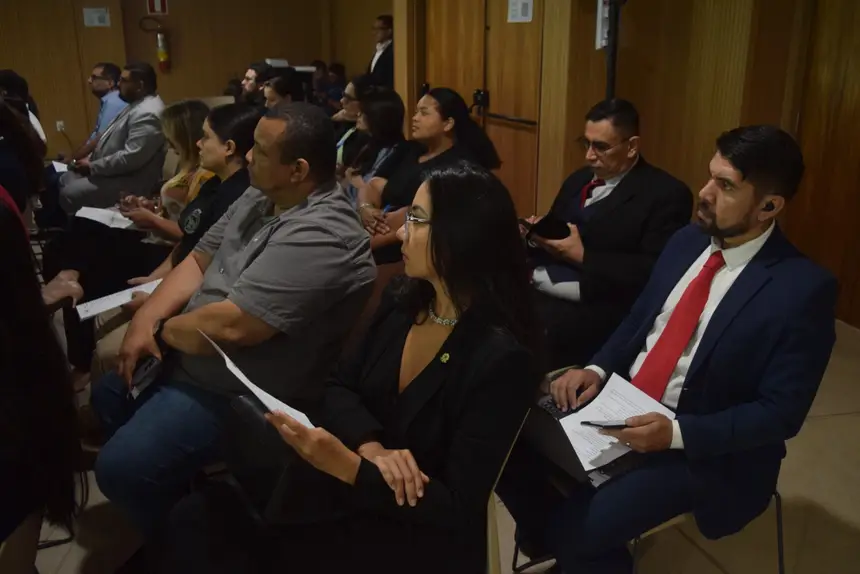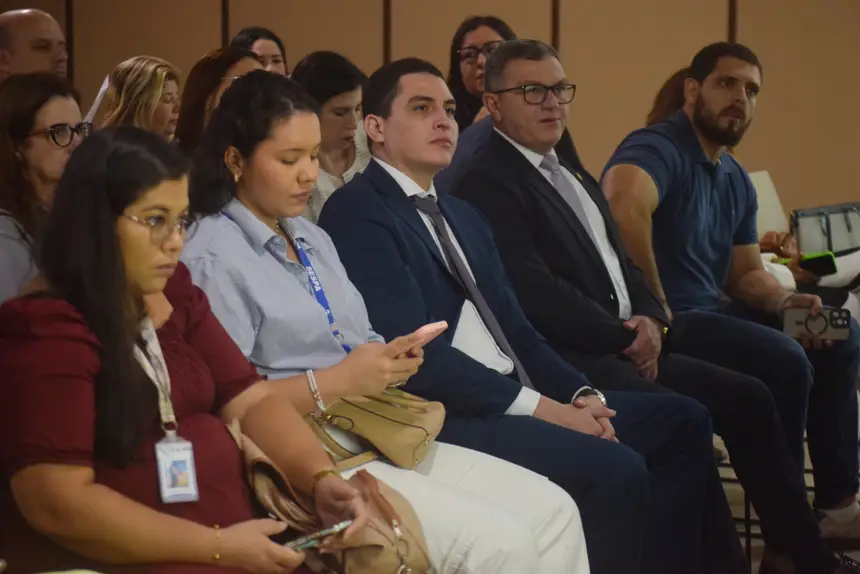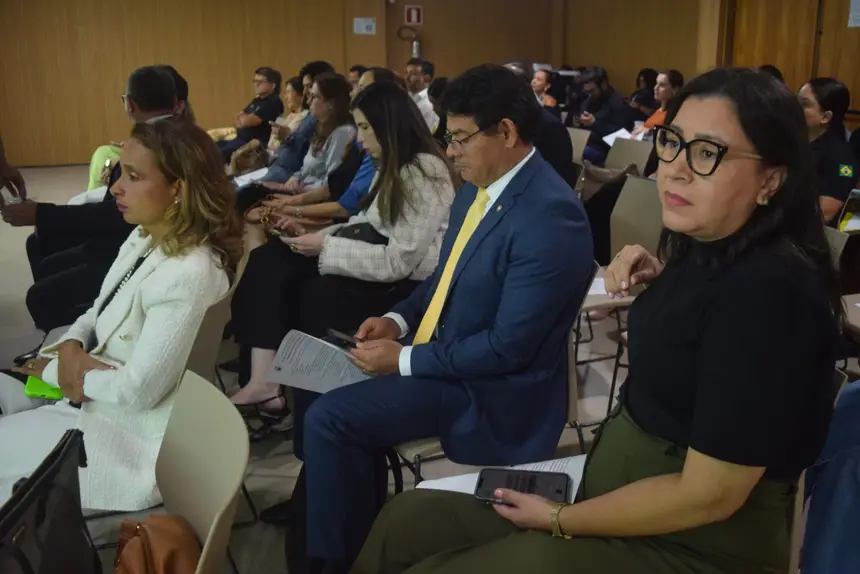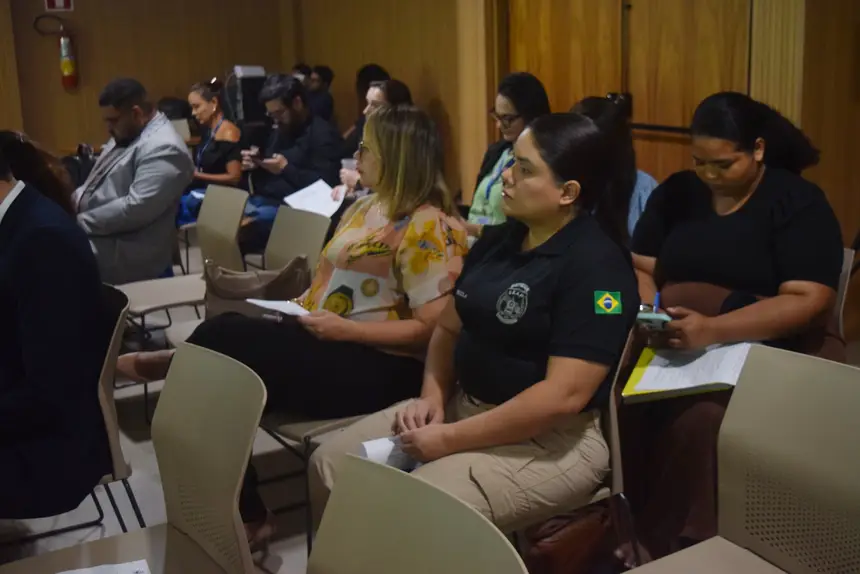In six years, the State consolidates advances in the penitentiary system
By participating in a meeting about the Fair Sentence Plan, Seap invests in public policies that encourage work and education in the prison environment, and also ensure health for the detainees
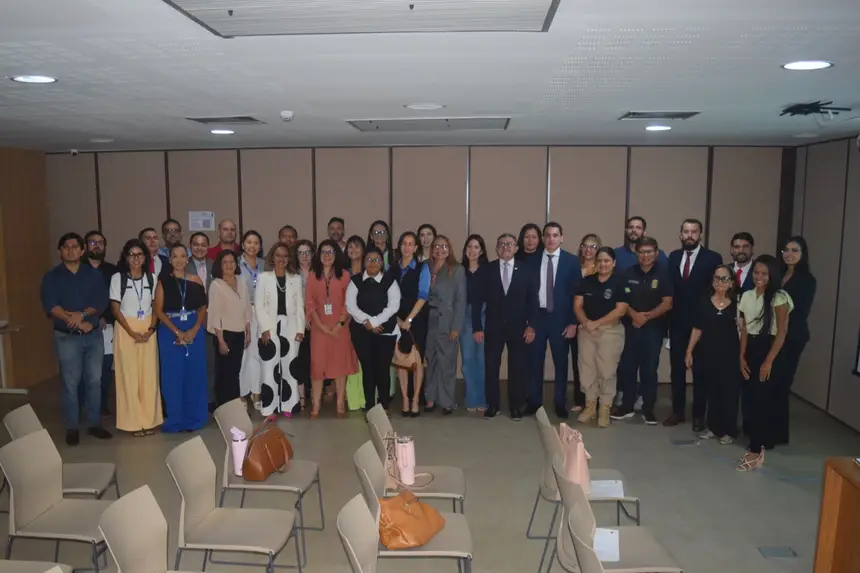
Representatives from the State Secretariat of Penitentiary Administration (Seap) participated this week at the State Court of Justice (TJPA) in the last general presentation meeting of the Fair Sentence Plan, where other objectives were defined and the best scenarios for the Penitentiary System of Pará and people deprived of liberty (PPLs) were articulated.
The head of the Operational Management Undersecretariat (Sago) of Seap, Ringo Alex Rayol Frias, classified the moment as historic, as it consolidates the goals established in the National Plan. "The State of Pará has been building a fairer and more humane penitentiary system over the last six years, resulting in social peace," said the secretary, adding that "the construction of this plan clearly formats the objectives and goals to be achieved in the next three years."
According to Ringo Alex Rayol Frias, there has been a "notable development" in the structuring and promotion of a more uniform Justice system at the national level, ensuring respect for human dignity and efficiency in the use of public resources. “We have made significant progress in building policies focused on work, education, and health, thus closing the institutional cycle that concerns the obligation of Seap, which is to promote the custody and social reintegration of PPLs,” said the deputy secretary, for whom another differential is the control of the prison population and access, preventing the entry of illicit materials into the prison environment.
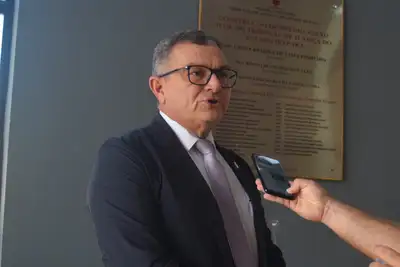
Expectation - He noted that the positive result is the fruit of the joint action of agencies involved in penal execution. "Everyone has a responsibility in building a new era, a safer penitentiary system, making an equation and also equalizing the negotiations at the national level," he emphasized. Acknowledging that the new goals are challenging, the deputy secretary assured that, "in these next three years, we will achieve a number that can place Pará in a prominent position at the national level."
The plan proposes a set of challenging goals, ranging from the expansion of prison vacancies to the increase in the number of inmates enrolled in educational, work, and health programs.
For Belchior Machado, director of Work and Production at Seap, the Secretariat has been on this path for several years. "Since 2019, Seap has been on the rise regarding various indicators present in the plan. We have made significant advances in the areas of education, health, work, and the expansion of vacancies. Now, the challenge is to intensify this work, in cooperation with other institutions, to fully achieve the established goals," he informed.
Belchior Machado also emphasized that Seap is fully open to other institutions to act, in partnership, with the aim of achieving robust goals. "Our expectation is to fully achieve them (goals) and transform the prison system, which is already more adequate and dignified, ensuring the process of social reintegration. We are aware that there are greater challenges to be faced. We will face them and manage to meet all the goals," he assured.
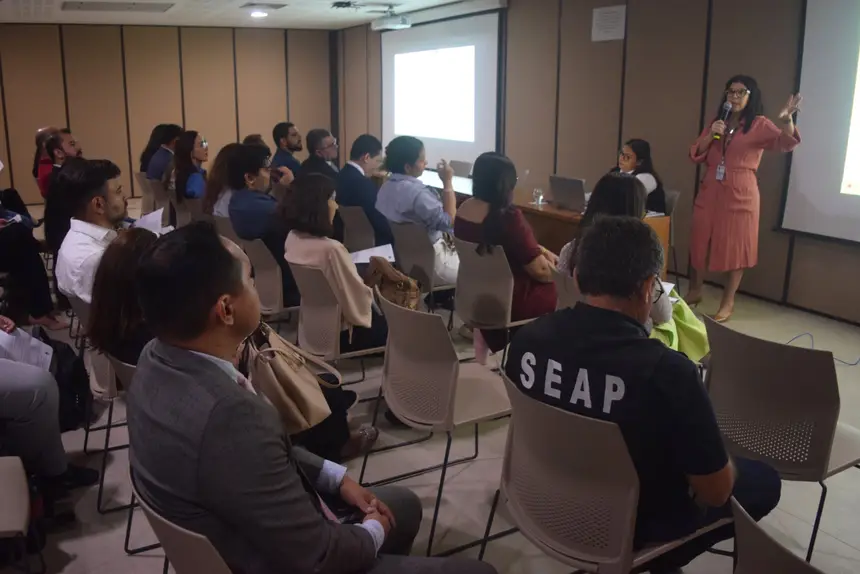
Confrontation - Fair Sentence is the national plan to address demands in Brazilian prisons, built by the National Justice Council (CNJ) and the Federal Government, with the support of various institutional partners and civil society. The preparation follows a determination from the Supreme Federal Court (STF) in the judgment of the Arguição de Descumprimento de Preceito Fundamental 347 (ADPF 347), in October 2023.
The decision indicated that there are systematic violations of human rights in prisons, which offer precarious conditions of infrastructure, hygiene, and food, insufficient health care, overcrowding, inadequacy in the procedural management of sentenced individuals, and reports of torture and mistreatment.
This scenario constitutes an unconstitutional state of affairs (ECI), recognized by the STF. This nonconformity compromises the ability of the Brazilian prison system to promote fair accountability, with effects on the social reintegration of individuals in post-prison life and on criminal recidivism. Therefore, it generates significant impacts on daily life, security, and the guarantee of social well-being.
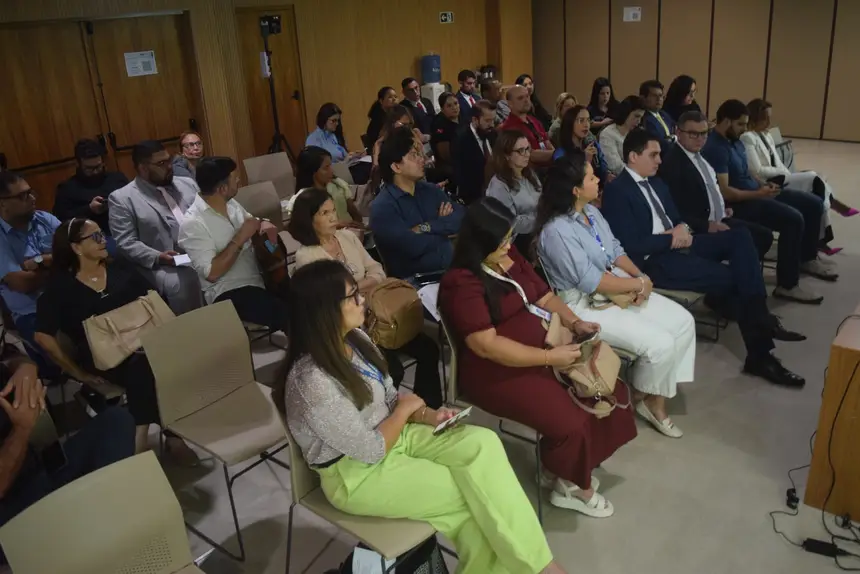
With more than 300 goals to be achieved by 2027, the plan proposes a prison system that contributes to the safety of the population, realized through the satisfaction of human and fundamental rights of each citizen, favoring efficiency in the use of public resources and national development in a broader sense.
In addition to the national goals, each unit of the Federation will present its own plan, which must be validated by the Supreme Court. The CNJ will be responsible for presenting semiannual reports to the STF on the progress of the plan.



